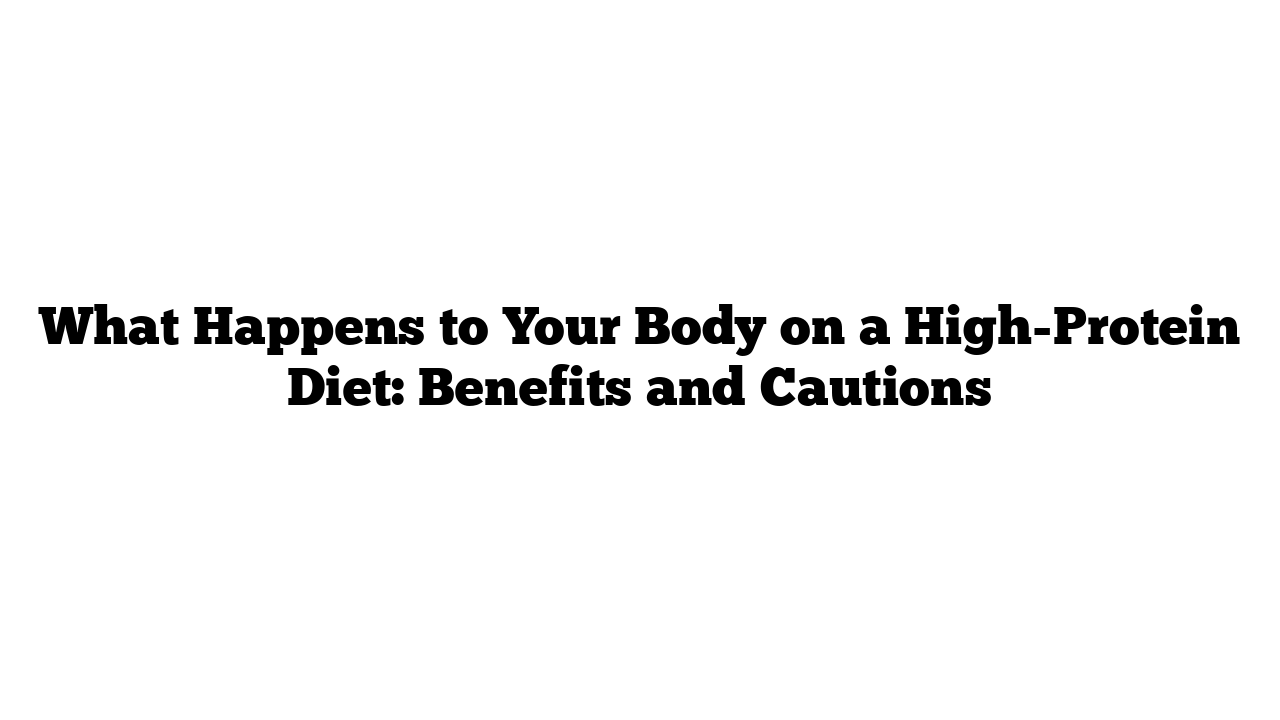Are you considering a high-protein diet to help lose weight, gain muscle, or improve health? While a high-protein diet might seem like the fast track to fitness, it’s important to understand the effects—both good and bad—that protein can have on your body. Here, we explore how protein functions, the ideal intake, and potential side effects.
Why Protein Matters
Protein is essential for life. It forms your cells, supports vital functions, and helps repair body tissues. About 20% of your body consists of protein, which is made up of amino acids—the building blocks that your body can’t fully produce on its own. Nine essential amino acids must come from your diet through protein-rich foods. But how much protein is right for you?
How Much Protein Do You Need?
Protein requirements can vary. Generally, adult men need about 56 grams per day, while women need 46 grams. A better measure might be based on body weight—around 0.365 grams per pound of body weight. For example, if you weigh 150 pounds, aim for around 55 grams of protein per day. Athletes and active individuals might need more for muscle repair and growth.
Benefits of a High-Protein Diet
- Reduces Appetite
Protein curbs hunger more effectively than carbs or fats. It lowers levels of ghrelin, a hormone that signals hunger, and boosts peptide YY, which makes you feel full. This combination can reduce overeating and support weight management. - Boosts Metabolism
Digesting protein requires more energy, known as the thermic effect of food (TEF). High-protein meals can increase TEF by 5-15% more than meals with less protein, which may lead to burning an extra 80-100 calories per day. Some studies even suggest high-protein diets can burn an additional 260 calories daily. - Supports Muscle Health
Protein is essential for muscle maintenance and growth. While eating protein alone won’t build muscle, combining it with regular exercise can help. Even when you’re less active, a high-protein diet helps preserve muscle mass. - Promotes Weight Loss and Maintenance
Studies show that high-protein diets can help with weight loss and maintenance. For instance, a high-protein group lost 53% more body fat than those on lower-protein diets. Additionally, a study in the Netherlands found that high-protein diets reduced weight regain by around 50%. - Improves Bone Health
Contrary to myths, protein is beneficial for bone health. Research shows that both animal and plant proteins support bone mass as we age, helping reduce osteoporosis risk. - Lowers Blood Pressure
A high-protein diet may lower blood pressure and reduce LDL cholesterol and triglycerides, which benefits heart health. - Supports Healing and Recovery
Protein aids in tissue repair, and consuming more can accelerate recovery from injuries. Studies suggest that high-protein diets could potentially help speed up healing.
High-Quality Protein Sources
- Animal Protein
Chicken: 31g of protein per 100g
Fish: Tuna provides around 30g per 100g and offers heart-healthy omega-3 fatty acids.
Shrimp: 23g per 100g
Crickets: 60g per 100g; an eco-friendly, protein-dense option that’s gaining popularity. - Plant-Based Protein
Seitan: 25g per 100g, the highest plant-based protein option.
Tofu: 20g per 100g, along with iron and calcium.
Beans: Around 15g per cup, adaptable for various dishes.
Doctors often recommend that most protein should come from plant sources, which also provide other essential nutrients and fiber.
How Much Protein Is Too Much?
While high-protein diets offer many benefits, excess protein can lead to issues:
- Kidney Stress
High protein intake can strain kidneys, especially in those with existing kidney issues, increasing the risk of kidney stones. - Nutrient Imbalance
Focusing solely on protein may lead to deficiencies in fiber, vitamins, and minerals. Balanced diets incorporating various nutrients are essential for health.
Wrapping Up
A high-protein diet can support weight management, muscle health, and even heart and bone health. However, balance is key. Choose a variety of protein sources, favor plant-based options when possible, and avoid eliminating other nutrients.
